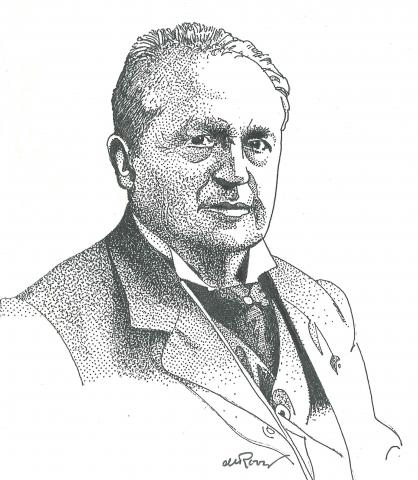A revised and updated version of
Abraham Kuyper: An Annotated Bibliography 1857-2010 by Tjitze Kuipers (2011)
You can buy a printed edition of this book on the site of the publisher.
1882
A poem for Nicolaas Beets. In Najaarsbladen. Gemengde gedichten, 1874–1880 (Amsterdam: W.H. Kirberger, 1881), Beets included his 1874 poem “Aan dezen en genen” [To these and those]. The dismissive two-stanza poem was likely inspired by Beets’s experience with Kuyper (see 1870.11). While Beets directed his poem cautiously to “these and those,” Kuyper regarded the poem as directly addressing him and thus wrote his seven-stanza poem openly and directly aan Beets.
Kuyper could write prose very poetically but he left very few poems behind. After Kuyper’s death, however, his oldest son, H.H. Kuyper (1864–1945), wrote an article (De Heraut, no. 2235, November 21, 1920) entitled “Dr. A. Kuyper … Also a Poet.” In this article he revealed that the poem printed at the opening of a celebratory issue of De Heraut (cf. 1880.10) was authored by his father. The concluding line of this six-line poem reads, Uit deernis met uw smaad, schonk u Zijn trouw deez’ stichting [Out of pity for your defamation this institution is offered to you through his faithfulness]. (See also 1928.02, p. 116. For the poem translated into German and Hungarian, see 1924.08 and 1927.09, respectively.) In the same brief article, H.H. Kuyper printed another poem—as playful as it was serious—that his father had once written in his son’s scrapbook (see 1920.09). On the occasion of Kuyper’s hundredth birthday in 1937, A.G. Honig (1864–1940), a Kampen professor, published a poem that Kuyper had written during his student days (see 1937.09). An even earlier rhyme was published in 1921.03. Finally, it should also be mentioned that Kuyper once expressed his life’s goal in poetic form (see 1897.16 and, for an English translation, 2001.09) by reworking a poem by Isaac da Costa (cf. 1891.05).


